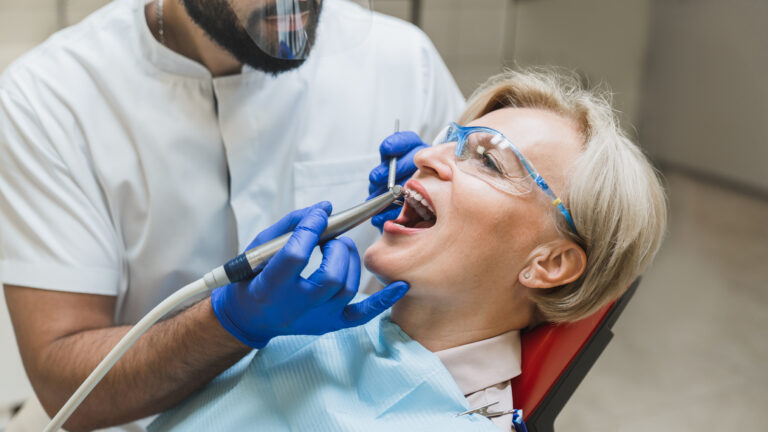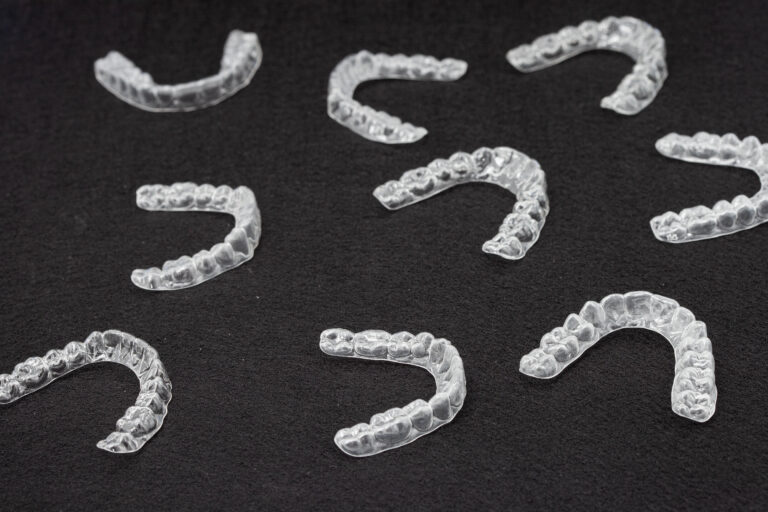Partial vs Full Dentures: Complete Guide to Choosing the Right Option
When facing significant tooth loss, you’re likely wondering whether partial or full dentures are the right solution for your situation. This decision affects not just your smile, but your daily eating habits, speech patterns, and overall quality of life. Understanding the key differences between partial dentures and complete dentures will help you make an informed choice that best fits your needs and budget.
According to the CDC’s 2024 Oral Health Surveillance Report, 1 in 6 adults aged 65 or older have lost all of their teeth, while many more have significant tooth loss requiring partial solutions. The good news is that both partial and full dentures have evolved significantly, offering comfortable and natural-looking options for people at any stage of tooth loss.
Whether you’re missing just a few teeth or need complete tooth replacement, we’ll walk you through everything you need to know about partial vs full dentures, including costs, functionality, and how to determine which option will work best for your lifestyle.
What Are Partial and Full Dentures?
Partial dentures and full dentures serve different purposes based on the extent of your tooth loss. Partial dentures are designed for people who still have some healthy remaining natural teeth but are missing several teeth in one or both arches. These removable appliances fill the gaps left by missing teeth while preserving and working alongside your existing teeth.
Complete dentures, also called full dentures, replace all teeth in either the upper arch, lower arch, or both. Unlike partial dentures, full dentures don’t rely on existing teeth for support and instead rest directly on your gum tissue and jaw bone for retention.
How Partial Dentures Work
Partial dentures attach to your remaining natural teeth using various methods, most commonly metal clasps that wrap around supporting teeth called abutment teeth. More advanced options include precision attachments that connect to crowns placed on your healthy teeth, creating a more secure and aesthetically pleasing fit.
Cast metal partial dentures, the most durable option, can last approximately ten years when properly cared for. These partial dentures use a metal framework that’s lightweight yet strong, with replacement teeth attached to pink-colored acrylic that mimics your gum tissue. Because they anchor to your existing teeth, partial dentures provide excellent stability for eating and speaking.
How Full Dentures Work
Full dentures rely on suction and denture adhesive to stay in place since there are no anchor teeth for attachment. Upper dentures typically have better retention because they cover more surface area of your palate, creating a better suction seal. Lower dentures can be more challenging to secure due to the smaller contact area and movement from your tongue.
Traditional dentures are placed 8-12 weeks after tooth extraction, allowing your gums to heal completely. Immediate dentures can be placed right after extraction, but they require more frequent adjustments as your mouth heals and changes shape.
Key Differences Between Partial and Full Dentures
Understanding how partial and full dentures differ in daily use will help you set realistic expectations and choose the option that aligns with your lifestyle needs.
Stability and Security
Partial dentures offer superior stability because they attach to your existing teeth, which are firmly rooted in your jaw bone. This connection prevents the sliding and movement that sometimes occurs with full dentures. You can bite and chew with more confidence, and the risk of your dentures slipping during conversation is minimal.
Full dentures depend entirely on suction and proper fit against your gum tissue. While modern dentures fit much better than in the past, some movement during eating or speaking is normal, especially as you adjust to wearing them. Denture adhesive can significantly improve retention, and implant-supported dentures eliminate movement issues entirely.
Eating and Speaking Differences
With partial dentures, you typically won’t need to make major dietary changes since your natural teeth continue to handle much of the chewing force. You can usually eat most foods you enjoyed before, though you may need to be slightly more careful with very hard or sticky items that could damage the denture.
Full denture wearers need to relearn eating techniques, particularly avoiding biting directly into foods with front teeth. Cutting food into smaller pieces and chewing evenly on both sides helps maintain denture stability. Speaking may feel different initially, but most people adapt within a few weeks of consistent wear.
How to Decide Which Type Is Right for You
The choice between partial and full dentures depends on several key factors that you can evaluate with your dentist’s guidance.
Evaluating Your Tooth Loss
If you have healthy teeth remaining that can support a partial denture, this option preserves your natural tooth structure and provides better function. However, these supporting teeth must be free of gum disease and have adequate bone support.
When most or all teeth are severely damaged, diseased, or already missing, full dentures may be your best option. Sometimes, borderline teeth that might support a partial denture short-term are better extracted to avoid future problems and additional treatment costs.
Oral Health Requirements
Successful partial dentures require healthy gums and strong supporting teeth. If you have active gum disease or significant bone loss around potential abutment teeth, these issues must be addressed first or may make full dentures a better choice.
Full dentures require adequate bone density and healthy gum tissue for proper fit and retention. If significant bone loss has occurred, you may need additional procedures like bone grafting or might consider implant-supported options for better stability.
Partial vs Full Dentures Cost Comparison
Cost considerations play a significant role in denture selection, with various factors affecting the final investment in your oral health.
Partial Denture Pricing
Acrylic partial dentures, typically used as temporary solutions, range from $300-$1,000. These are less durable but provide an affordable option for short-term tooth replacement. Metal partial dentures, the preferred long-term solution, cost between $900-$2,000. According to CareCredit’s dental cost analysis, resin-based partial dentures average $1,738, while metal partial dentures average $2,229.
Flexible partial dentures, made from thermoplastic materials, offer a comfortable, metal-free option at a mid-range price point. Precision attachment partial dentures represent the premium option, providing the best aesthetics and function but requiring crowns on supporting teeth.
Full Denture Pricing
Full dentures show a wide price range depending on materials and construction quality. Economy dentures start around $452 per arch, while mid-range conventional dentures average $1,968. Premium dentures with advanced materials and custom aesthetics can cost over $12,000 for a complete set.
The investment in higher-quality dentures often pays off in better fit, appearance, and durability. Premium dentures typically last longer and require fewer adjustments, making them cost-effective over time.
Insurance Coverage and Payment Options
Most dental insurance plans provide some coverage for dentures, typically 50% after meeting your deductible. Coverage limits usually apply, and you may need to wait for certain time periods between replacements.
Many dental offices offer financing plans to help manage costs, and some patients use HSA or FSA funds for denture treatment. At Princeton Family Dental, we work with various insurance providers and offer payment plans to make quality dentures accessible to our Trenton area patients.
Living with Partial vs Full Dentures
Your daily experience with dentures depends largely on the type you choose and how well you adapt to wearing them.
Adjustment Period Expectations
Partial dentures typically have a shorter adjustment period since your natural teeth continue providing familiar chewing surfaces and speech patterns. Most people adapt to partial dentures within a few days to two weeks.
Full dentures require more patience, with a typical adjustment period of 4-8 weeks. During this time, you’ll relearn eating and speaking patterns while your mouth adapts to the new appliances. Starting with softer foods and practicing speech exercises helps speed this process.
Daily Care and Maintenance
Both partial and full dentures require daily cleaning with a denture brush and specialized denture cleaning tablets. However, partial denture wearers must also maintain excellent care of their remaining natural teeth to prevent decay and gum disease that could compromise the denture’s support.
Full dentures should be soaked overnight in cleaning solution to maintain their shape and remove bacteria. Proper storage in water or denture solution prevents the acrylic from drying out and cracking.
Common Questions About Partial and Full Dentures
Can Partial Dentures Become Full Dentures Later?
Yes, partial dentures can be modified or replaced with full dentures if you lose additional teeth over time. However, it’s often more cost-effective to create new full dentures rather than repeatedly modifying a partial denture. Planning for potential future tooth loss helps ensure your initial investment serves you well long-term.
Which Type Lasts Longer?
Metal partial dentures typically last 8-10 years with proper care, while acrylic partials may need replacement in 3-5 years. Full dentures generally last 5-7 years before requiring replacement due to changes in your mouth structure and normal wear.
Both types may need periodic adjustments, soft relines, or hard relines to maintain proper fit as your mouth changes over time.
Are There Age Restrictions for Either Type?
Neither partial nor full dentures have specific age restrictions. The determining factors are oral health, bone structure, and your ability to maintain proper denture care. Some younger patients choose dentures after trauma or genetic conditions, while others may not need them until later in life.
Get Expert Guidance on Your Denture Decision
Choosing between partial and full dentures is an important decision that affects your daily life, confidence, and oral health. The right choice depends on your specific situation, including the condition of your remaining teeth, your lifestyle needs, and your budget considerations.
At Oracare Dental Centre, our experienced team helps patients navigate these important decisions with comprehensive evaluations and personalized treatment recommendations. We offer both traditional and advanced denture options, including implant-supported solutions that provide enhanced stability and comfort. Whether you need partial dentures to preserve your remaining healthy teeth or full dentures for complete smile restoration, we’re committed to helping you achieve optimal function and confidence. Schedule a consultation and discover which denture option will best serve your needs and lifestyle.







